
Japan’s fast-paced life still makes room for Buddhist values, sometimes in ways people barely notice. Through family customs, seasonal rituals, and daily reflections, Buddhism remains a quiet force in homes and communities. Its ancient wisdom hasn’t disappeared; it’s simply found new ways to fit the rhythms of modern living. Here’s how.
Temple Visits Still Mark The New Year For Millions

Every New Year, millions in Japan visit Buddhist temples for Hatsumode, the first shrine or temple visit of the year. Visitors ring massive bells to leave the past year’s bad choices behind. At spots like Senso-ji, Tokyo’s oldest and most famous Buddhist temple, crowds gather for omamori charms and festive temple fortunes.
Buddhist Funerals Remain The Norm In Japan
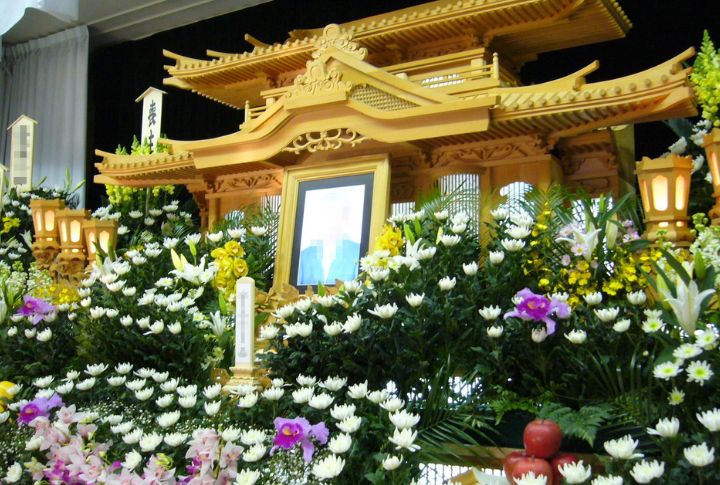
Buddhist funerals are still widely practiced in Japan, with incense rituals and priest-led chants central to the ceremonies. Families keep memorial tablets at home, preserving spiritual ties. These multi-day rites reflect how Buddhist traditions remain deeply woven into modern Japanese approaches to death and honoring ancestors.
Zen Meditation Is A Popular Wellness Practice
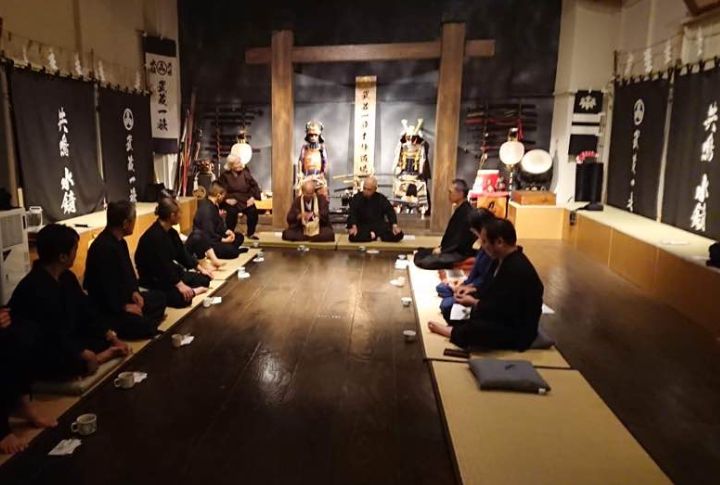
Zen meditation, a seated mindfulness technique from Japanese Buddhism, continues to be a common wellness habit in Japan. Public zazen sessions are silent meditations focused on posture and breath, held at temples year-round. Monks use wooden clappers to open and close each session, helping both newcomers and longtime participants stay on track.
Obon Festival Blends Buddhism With Summer Traditions
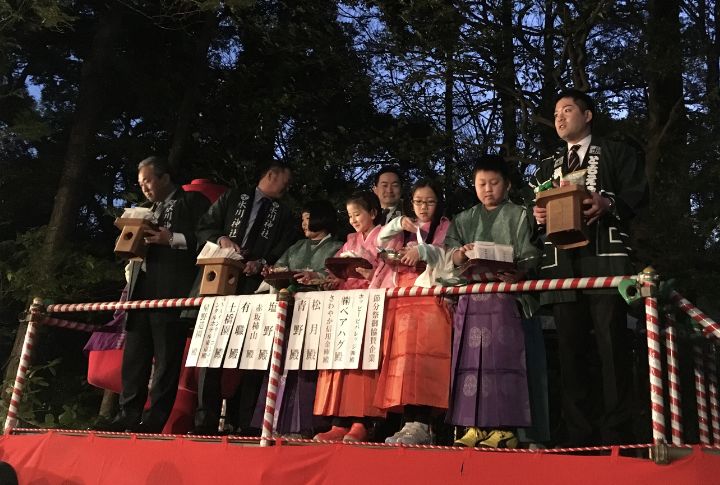
Celebrated as a time when ancestral spirits return to visit the living, Japan’s Obon festival combines Buddhist customs with local summer traditions. Families clean graves and light lanterns to welcome loved ones home. Many join Bon Odori dances or gather at rivers where paper lanterns float downstream in a farewell to lost relatives.
Jizo Statues Offer Comfort For Lost Children
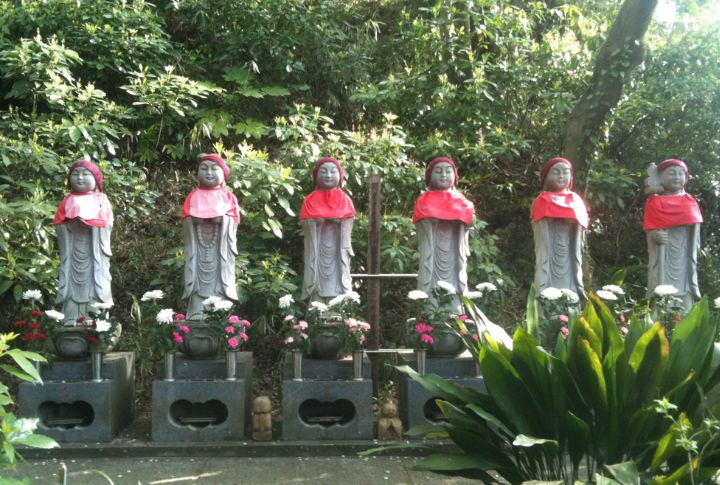
Jizo is honored in Japanese Buddhism as the guardian of children, especially those who passed away young. His statues are dressed in red bibs and caps and are placed along roads and in cemeteries. Parents usually leave toys or snacks at these sites as offerings and acts of remembrance.
Japanese Cuisine Features Buddhist Shojin Ryori
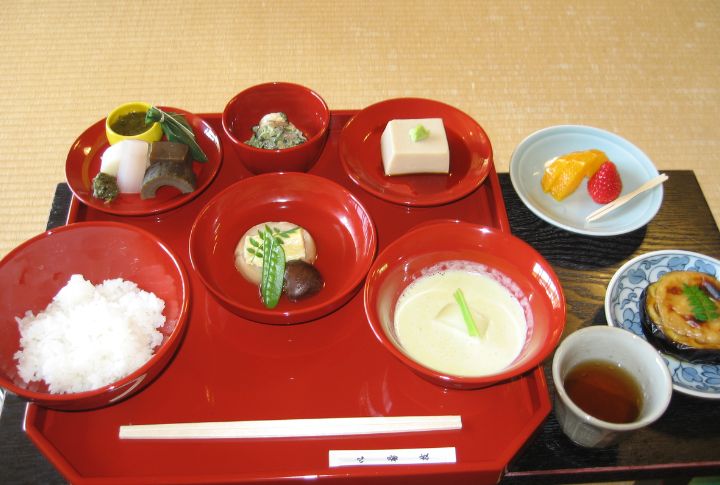
Plant-based and spiritually grounded, shojin ryori is a centuries-old cuisine that reflects Buddhist values without using meat, fish, or pungent ingredients. Its preparation is treated as a form of meditation by monks who prioritize balance and presentation. The result provides visitors a serene and thoughtful window into Japan’s mindful food culture.
Buddhist Symbols Shape Everyday Architecture
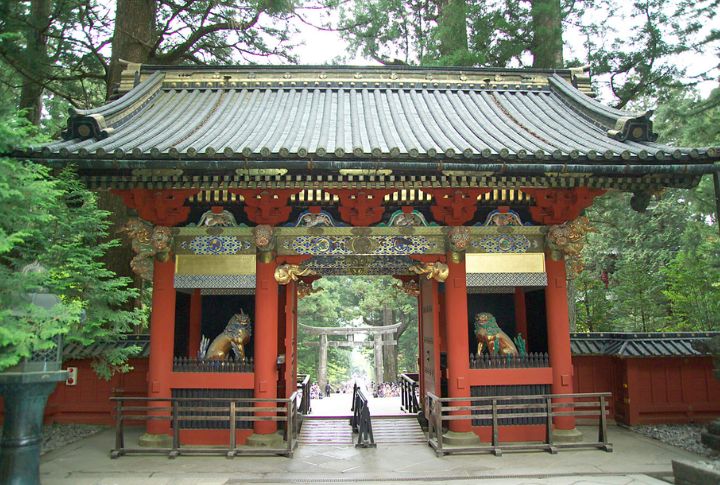
Buddhist touches are everywhere in Japanese buildings, even in the middle of modern cities. Pagodas, which are multi-tiered towers built to house sacred relics, and temple gates are designed using ancient spiritual beliefs. Lotus flowers, which symbolize purity and enlightenment in Buddhism, are frequently placed on walls or doors. Some homes include a small altar.
Pilgrimages Still Attract Thousands Each Year
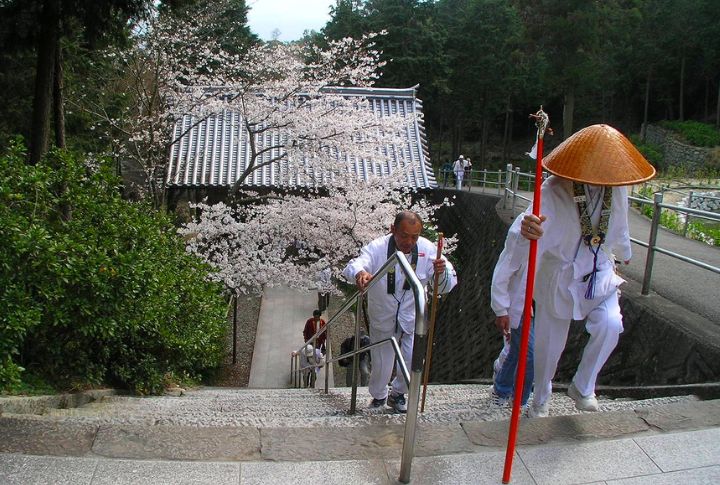
Religious walking pilgrimages still play a visible role in Japanese cultural and spiritual life. The Shikoku 88-temple trail, an ancient spiritual trail connecting 88 temples on Shikoku Island, draws thousands yearly for healing and reflection. To support the journey, certain inns welcome pilgrims with free lodging along the route.
Buddhist Concepts Shape Ethical Education
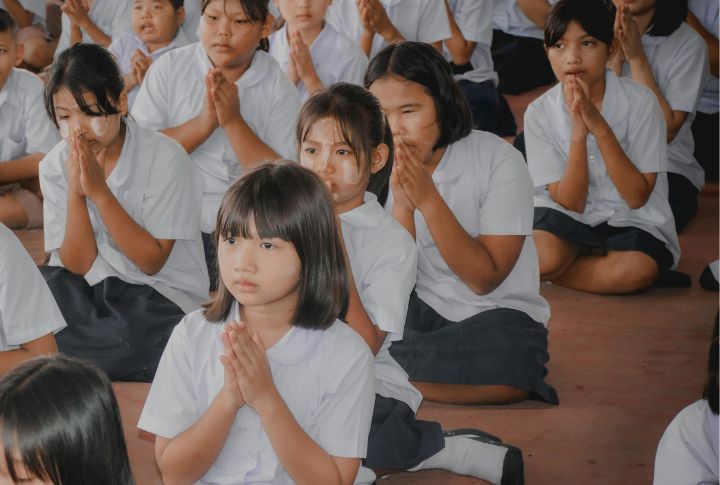
Moral education in modern Japan continues to draw from Buddhist principles. Values such as compassion and self-discipline are taught early, both at home and in schools. Several classrooms even partner with local temples for meditation sessions. That influence carries into lunch routines, where gratitude chants remain a daily tradition.
Buddhist Weddings Are Quiet But Meaningful
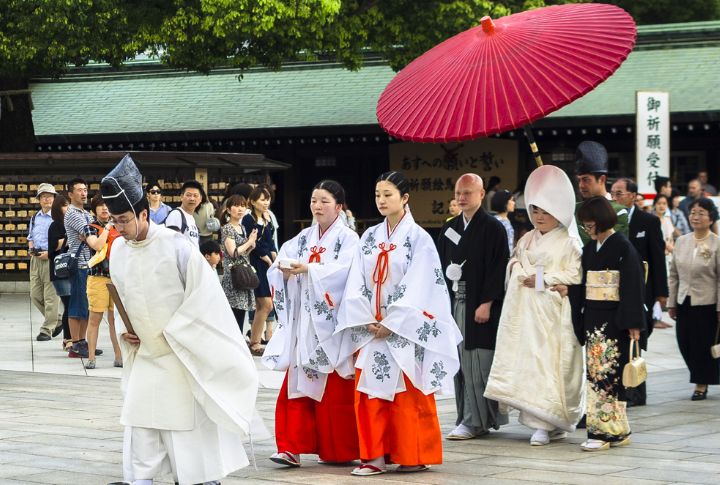
In modern Japan, many couples choose Western-style weddings, but Buddhist ceremonies remain an option for those seeking a more spiritual setting. Held in temple halls, the rituals include monk-led chants and the exchange of vows. The peaceful atmosphere gives the occasion a deep and lasting significance.

